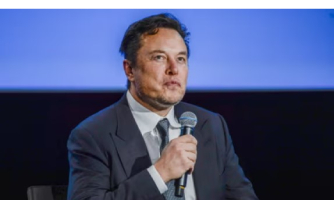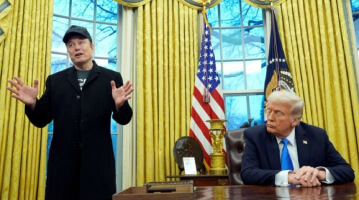Elon Musk Opens Up About His Disappointment in Trump’s Tax Plan
Elon Musk, one of the world’s most recognisable and influential business personalities, has openly criticised the tax breaks under former US president Donald Trump. Musk called the tax measures “disappointing” and questioned whether they serve the broader public in what has become a widely publicised and debated statement. As someone who has benefited from a business-friendly economy through leading high-profile companies like Tesla and SpaceX, these latest comments by Musk suggest that he has started thinking about how tax policies should ideally serve the poor and not just the rich. This statement has undoubtedly added more heat to the ongoing debate on who really benefits from tax policies enacted by the government.
Musk Says the System Feels Off

In explaining his concerns, Musk described the current tax setup as one that “feels off.” Though the phrase is simple, it captures a deeper issue—an underlying discomfort with a system that doesn’t seem to reflect fairness or shared benefit. Musk didn’t offer a full breakdown of tax laws, but his point was clear: there’s a disconnect between how the system is supposed to work and how it actually works in practice. The idea that the tax code might favour a small, wealthy group over the majority isn’t new, but hearing it from someone inside that wealthy group gives the message more weight. Musk’s willingness to speak plainly gives voice to a concern that many people share.
Trump’s Tax Plan Under Scrutiny
The Tax Cuts and Jobs Act, signed into law by Trump in 2017, was billed as a major achievement meant to spark business growth and bring jobs back to the US. It significantly lowered corporate tax rates and allowed for more favourable treatment of certain types of income and business investment. However, critics have long argued that the benefits of the policy were unevenly distributed, with the wealthiest gaining the most. Musk’s recent remarks appear to support that criticism. His view suggests that while the intention may have been to help the economy, the real outcome has been a system that further entrenches inequality rather than addressing it.
Public Reaction to Musk’s Comments
Public responses to Musk’s statements were quick and divided. Many praised him for having the courage to speak against a system that benefits him, saying it was refreshing to hear such honesty from someone in his position. Others, however, questioned his motives, pointing out that Musk has received significant government support for his companies over the years, including tax incentives and subsidies. Still, even sceptics had to admit that Musk’s remarks brought renewed attention to a subject that is often overlooked in day-to-day politics. His voice, whether welcomed or not, has helped reignite public interest in how tax systems are built and who they are really serving.
A Wider Conversation About Tax

Musk’s comments are part of a broader conversation happening around the world. With economic challenges growing, many countries are being forced to re-examine how their tax systems work and who they serve. People are asking whether it’s fair for billionaires and multinational companies to pay lower tax rates—sometimes even less than small businesses or average workers. These concerns have led to wider calls for reform, including proposals for wealth taxes, closing loopholes, and increasing transparency. When someone like Musk adds his voice to the mix, it helps push these ideas into the mainstream. It suggests that even those at the top are beginning to see the risks of ignoring inequality.
Musk and Trump – No Longer Aligned

For a time, Musk and Trump seemed to share similar goals when it came to promoting business growth, reducing regulation, and putting American industry first. Musk even joined Trump’s advisory councils early in his presidency, though he later stepped down over policy disagreements. With these recent comments on tax policy, it appears the gap between the two has widened. While Trump continues to promote tax cuts for the wealthy as a sign of economic strength, Musk is now questioning whether those policies actually benefit society at large. This difference in approach shows how perspectives can shift—and how even allies can part ways when it comes to addressing deeper, systemic issues.
Final Thoughts
Criticism of Trump’s tax breaks by Elon Musk has enriched the silence that is simmering on the issues of economic fairness and public policy. His inclination to question a system that enables people such as himself demonstrates a sort of reflection scarcely found in the world’s richest men and women. Musk does not proffer a new tax plan, nor does he cry out for radical reform, but in the process, his voice does carry weight. The words inspire others, especially those in leadership positions, to think about whether the existing tax model truly creates a balanced, sustainable society. In a world where more and more people are struggling to put food on the table, it might be the voices like Musk’s that bring the discourse forward and fairness back to the policy agenda.

